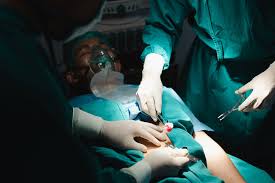
Life-Saving Procedure Rescues Patient from Rare and Deadly Heart Condition
A team of medical professionals led by Dr. Anand Ram, Consultant Interventional Cardiologist at Wockhardt Hospitals, Mira Road, recently performed a high-risk procedure that saved the life of a 41-year-old man suffering from a critical heart condition known as LMCA Cardiogenic Shock Syndrome.
Mr. Sanjeev Tripathi, a resident of Mira Road and an employee at Goregaon Film City, presented to the emergency department of Wockhardt Hospitals in May 2024 with severe symptoms. Despite his history of smoking, the sudden onset of acute chest pain, intense sweating, left arm pain, and persistent vomiting led him to seek urgent medical attention. His blood pressure was critically low at 60 mmHg, signaling an immediate life-threatening situation.
Dr. Anand Ram described the severity of Mr. Tripathi’s condition, stating, "The patient's ECG indicated an extensive anterior wall myocardial infarction, the most lethal form of heart attack. The diagnosis was LMCA Cardiogenic Shock Syndrome, caused by 100% stenosis of the Left Main Coronary Artery (LMCA) with TIMI 0 flow, reflecting a complete blockage." Prior to this incident, Mr. Tripathi had undergone a Percutaneous Transluminal Coronary Angioplasty (PTCA) with stenting to the Left Anterior Descending Artery (LAD) ten years ago but had ceased his medication four months prior.
With the patient’s life hanging in the balance, Dr. Ram’s team promptly moved Mr. Tripathi to the Cath Lab for immediate angiography, revealing the critical state of his LMCA. Despite the high risk, the team performed an angioplasty to restore blood flow. The procedure was challenging and the patient experienced cardiogenic shock post-operation due to extensive myocardial damage. Dr. Ram highlighted, “LMCA Cardiogenic Shock Syndrome, often referred to as a Widowmaker Heart Attack, is notoriously severe. The condition has a 100% mortality rate with conservative treatment and an 89% mortality rate with PCI and surgery.”
The successful angioplasty allowed Mr. Tripathi to be transferred to the ICU, where he received further care. Remarkably, after three days, he was discharged in stable condition. Since then, Mr. Tripathi has resumed his work and daily activities, continuing with regular follow-ups and remaining symptom-free. Dr. Ram emphasized the importance of adhering to prescribed medications, warning that discontinuation can lead to severe complications including heart attacks and death.
Expressing profound gratitude, Mrs. Priyanka Tripathi, the patient’s wife, conveyed her appreciation, saying, “We fall short of words to express our feelings. All we want to do is thank Dr. Anand Ram and his team for their successful treatment and our family’s recovery.”
This case underscores the critical importance of timely intervention and adherence to medical advice in managing complex cardiac conditions.